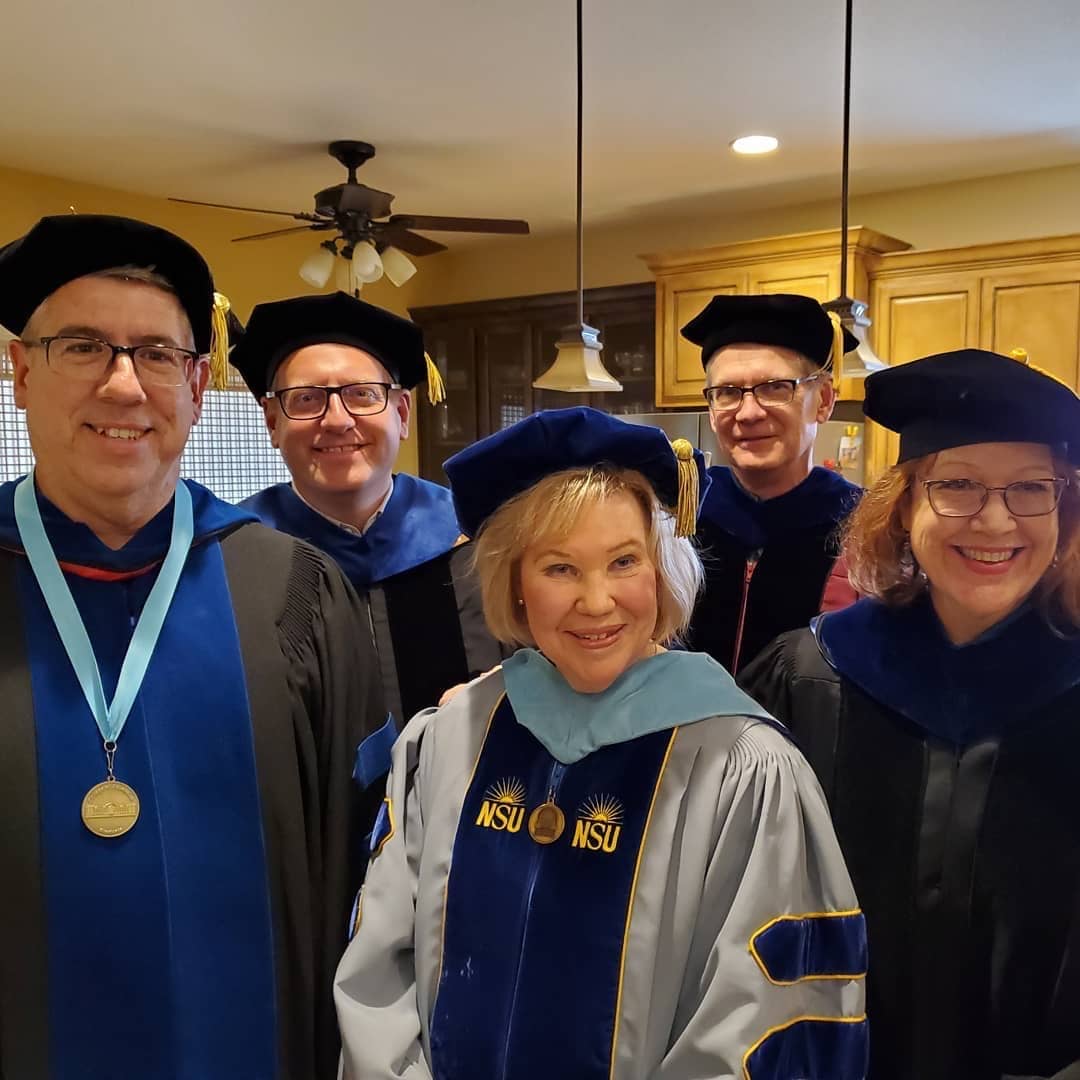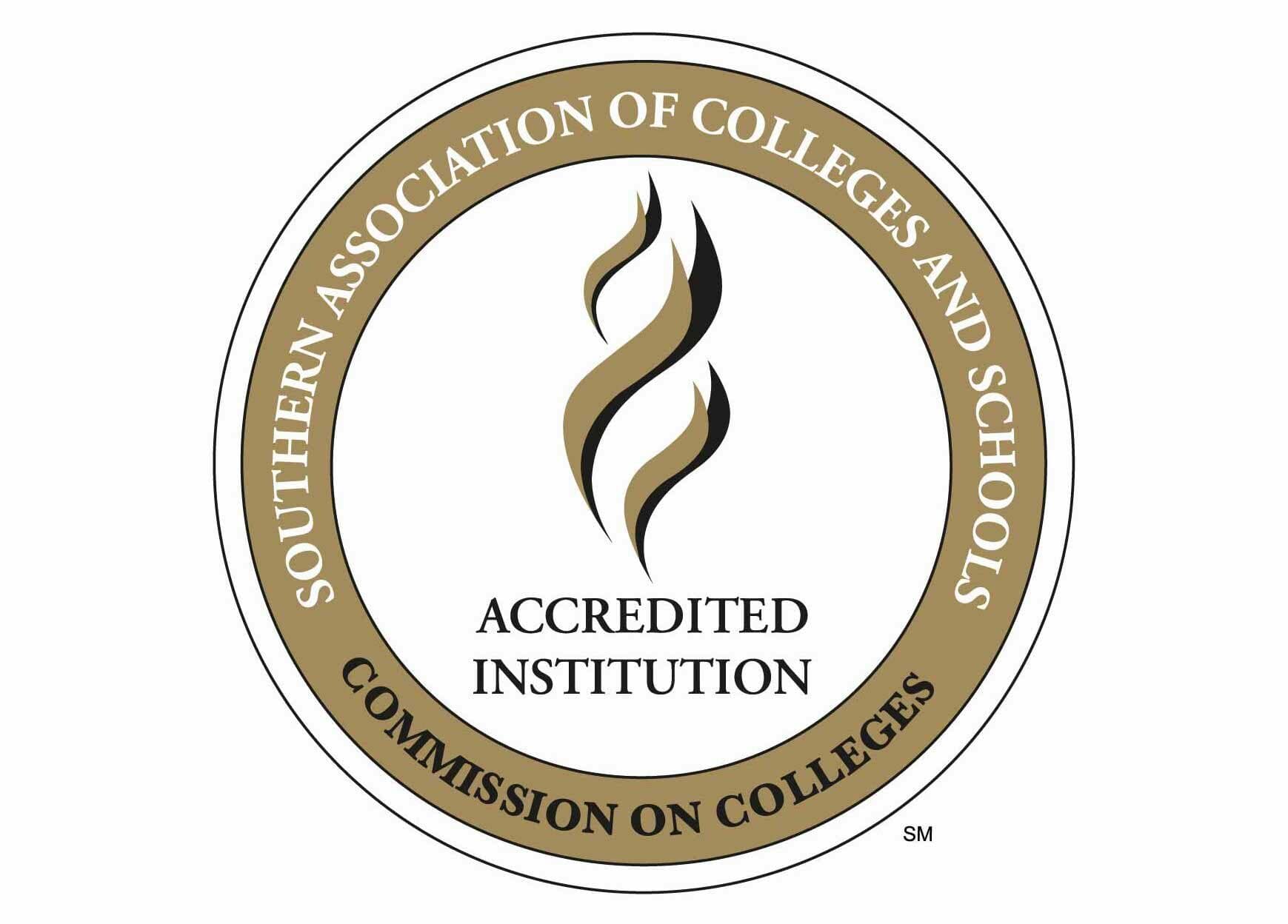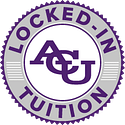Learn More
Discover Your Leadership Style
You view leadership as organic and evolving, so advance your skills while continuing to progress in your career with this fully online Ed.S. program. As a student of ACU Online, you are part of a vibrant, virtual, Christ-centered community that prioritizes your achievements and helps you balance work, life and other commitments.
Introducing
Locked-In Tuition.
Our Locked-In Tuition program guarantees you’ll pay the same price for your entire graduate degree.
About the Program

ACU Online’s Education Specialist (Ed.S.) in Organizational Leadership program is designed to equip professionals who are currently serving in positions of leadership within their organization, or for those seeking leadership roles who are not seeking the credential of a terminal degree, but are looking for a way to differentiate themselves.
Program Structure
All the Details on Your Degree
Our program is organized around five core competencies: personal development, resource development, collaboration and communication, organizational assessment, and organizational culture. Upon completing the Education Specialist program, you will know not only how to lead, but how to lead with purpose based upon the foundation of Christian vocation.
Required Hours
36 hours
2 year timeframe
Cost: $650/Hour with $200 resource fee per term
Example Coursework
Theories and Practices of Effective Leadership
Self-Assessment in Leadership
Leadership in Diverse Contexts
Organizational Change
Concentrations
Positive Leadership
Growth doesn’t happen by chance. A leader’s approach influences results, and that’s the focus of the field of positive leadership. Dating back to the early 2000s, this concept focuses on the organic relationship between organizations and their members and harnesses this fluidity to nurture a culture of excellence and growth. This concentration examines the outcomes, processes and attributes that take you and your organization beyond existing to thriving and excelling.
Higher Education
Now more than ever, leadership shapes a school’s and district’s culture. Providing a well-rounded understanding of the higher education landscape, this concentration equips you to shepherd students’ progress and promote faculty members’ strengths through courses in resource management, legal and ethical considerations, diversity, student development, spiritual formation, assessment and research.
Conflict Management
Collaboration is the backbone of growth. Yet, when an organization experiences conflict, the leader illuminates the path forward. The Conflict Management concentration focuses on the dynamics of interpersonal friction and effective negotiation and mediation skills. Developed for individuals in a wide variety of organizational and personal environments, this concentration also delves into organizational decision-making theory and practical alternatives designed to promote a culture of collaboration, resiliency and inclusivity.
Learning with Emerging Technologies
How quickly and effectively does your organization or school embrace and implement new technologies? Don’t just wish or speak theoretically. Get a head start and begin developing a plan with the Learning with Emerging Technologies (LET) concentration. These courses focus on all things related to technology-enhanced learning environments, including course design and development, ways to meet challenges, the evaluation of emerging technology practices, the theory and structure of instructional design, adult motivation, and self-directed learning.
Meet the Program Director

Dr. Karen Maxwell, Education Specialist in Organizational Leadership
Dr. Karen Maxwell is associate professor and program director for the Doctor of Education in Organizational Leadership and Education Specialist in Organizational Leadership programs. A majority of Dr. Maxwell’s leadership experience has been in public and private K-12 settings at the campus, regional, and state levels. She served on the statewide teacher appraisal advisory committee and most recently, on the Texas Education Agency’s team to develop Advancing Educational Leadership (AEL), an instructional leadership program required for Texas teacher evaluators and school principals. Dr. Maxwell earned her Ed.D. in Educational Leadership from Nova Southeastern University, where she researched principal assessment programs and campus leadership practices. She holds master’s degrees in Curriculum and Instruction and Educational Administration from Texas A&M Corpus Christi, and a B.A. in English from Abilene Christian University.
Spotlight

Student Spotlight: Kimberly Parrott, Ed.D.
Kimberly Parrott, online Ed.D. student says, “A lot of times when people think of these online experiences, they think it’s technical and that they won’t receive the same connection and support, but ACU has gone above and beyond to let you know there is someone there for you to answer your questions and be heard.” Read our latest blog to learn how her time as a Wildcat has changed her perspective on the field of education and the practical takeaways she has gained.

Faculty Spotlight: Dr. Karen Maxwell
From growing up in the Abilene community, to serving students online as Ed.D. and Ed.S. Program Director and Associate Professor, ACU has always held a special place in Dr. Karen Maxwell’s heart. Check out our latest faculty spotlight to learn more about her and her journey to online education.

The 5 Traits of Positive Leadership to Master
Do you want to take your leadership skills even further? Here are five skill areas where you need to focus your attention to achieve personal and professional success.

Faculty Spotlight: Dr. Jennifer Butcher
Meet Dr. Jennifer Butcher, Director of Diversity and Professor in the Doctor of Education in Organizational Leadership program! She has a passion for online learning and infusing a Christian worldview into her work. Read more to learn more about Dr. Butcher’s journey to ACU Online.

The Difference Between Transactional and Transformational Leadership
Transactional and transformational practices lie at separate ends of the leadership spectrum, but both are applicable to today’s business environment. Read on to learn the differences between these styles and how they are practiced in the workplace.

As businesses grow and expand, the need for energetic, collaborative leaders interested in nurturing success through teamwork, culture and inclusion continues to grow. Reflecting this trend, the Bureau of Labor Statistics has identified 9% more leadership and management roles across a wide swath of industries between 2020 and 2030.
Embrace the challenge and stand out with an online Ed.S. in Organizational Leadership from ACU. To lead improvement through commitment and inspiration, this program shows you how to:
- positively influence organizations through the expression of your vocation;
- create, interpret and administer practices that contribute to learning and personal growth in all organizational contexts;
- build a shared understanding and quality professional and personal relationships through available communication channels;
- apply organizational assessment strategies to their respective contexts; and
- influence organizational culture through positive, encouraging leadership practices.

To be considered for admission, students must:
- Complete the online program application accompanied by a non-refundable processing fee.
- Submit official transcripts showing earned bachelor’s and master’s degree from a regionally accredited college or university or the equivalent.
- Have a cumulative GPA of 3.0 or above, probationary status may be granted.
- Provide an academic writing sample.
- Submit a current resume.

Abilene Christian University is accredited by the Southern Association of Colleges and Schools Commission on Colleges to award associate, baccalaureate, master’s and doctoral degrees. Contact the Commission on Colleges at 1866 Southern Lane, Decatur, Ga. 30033-4097 or call 404-679-4500 for questions about the accreditation of ACU.
Abilene Christian University enjoys a strong national reputation as one of the leading private Christian universities in the west and southwest, indicated by various ratings (such as U.S. News and World Report and other reports).





